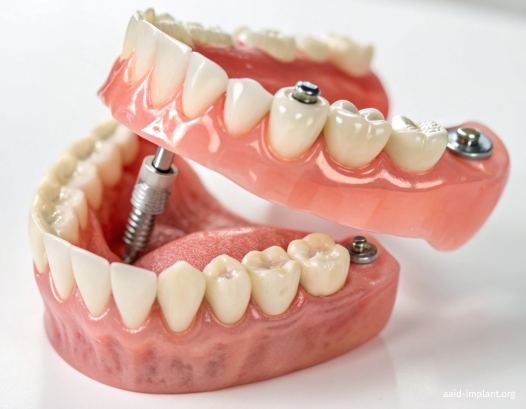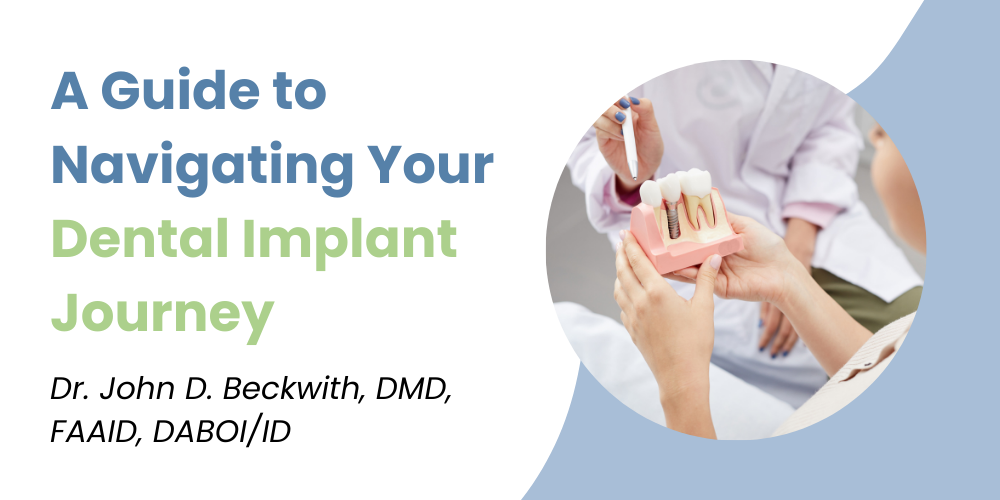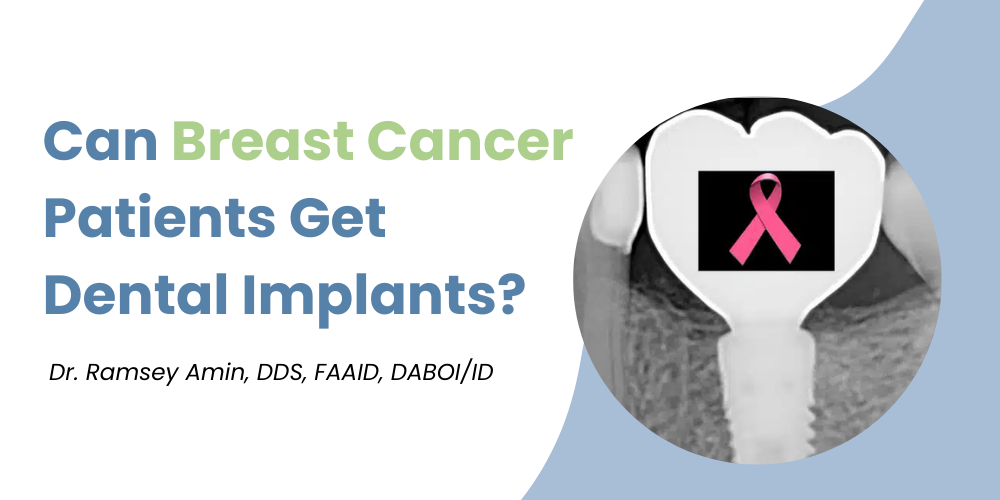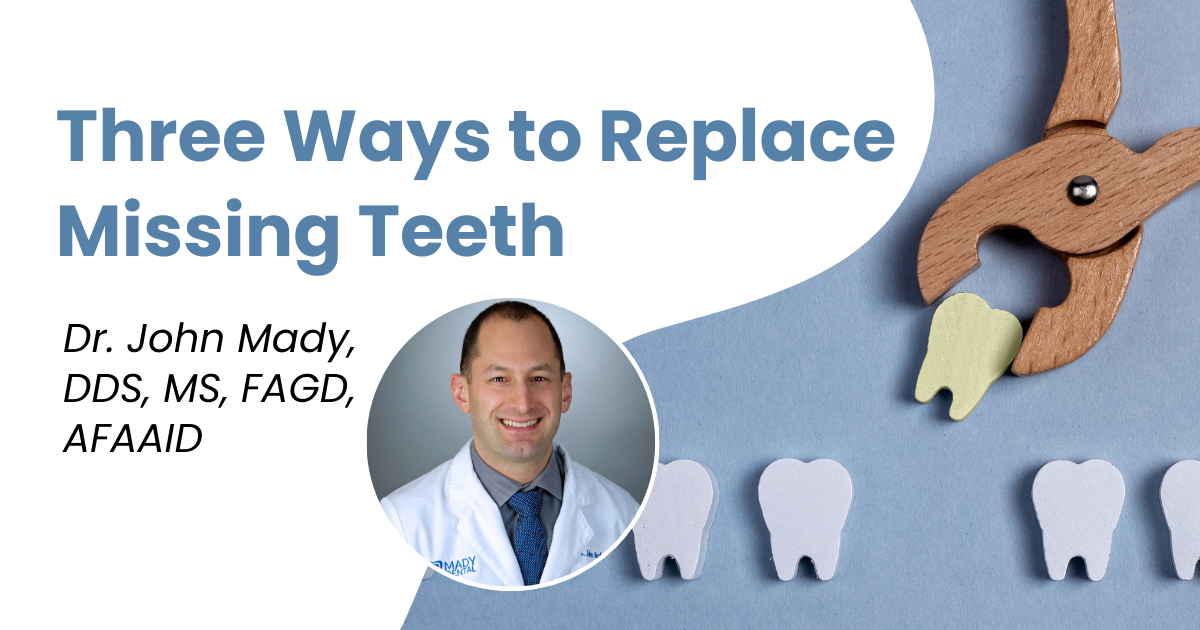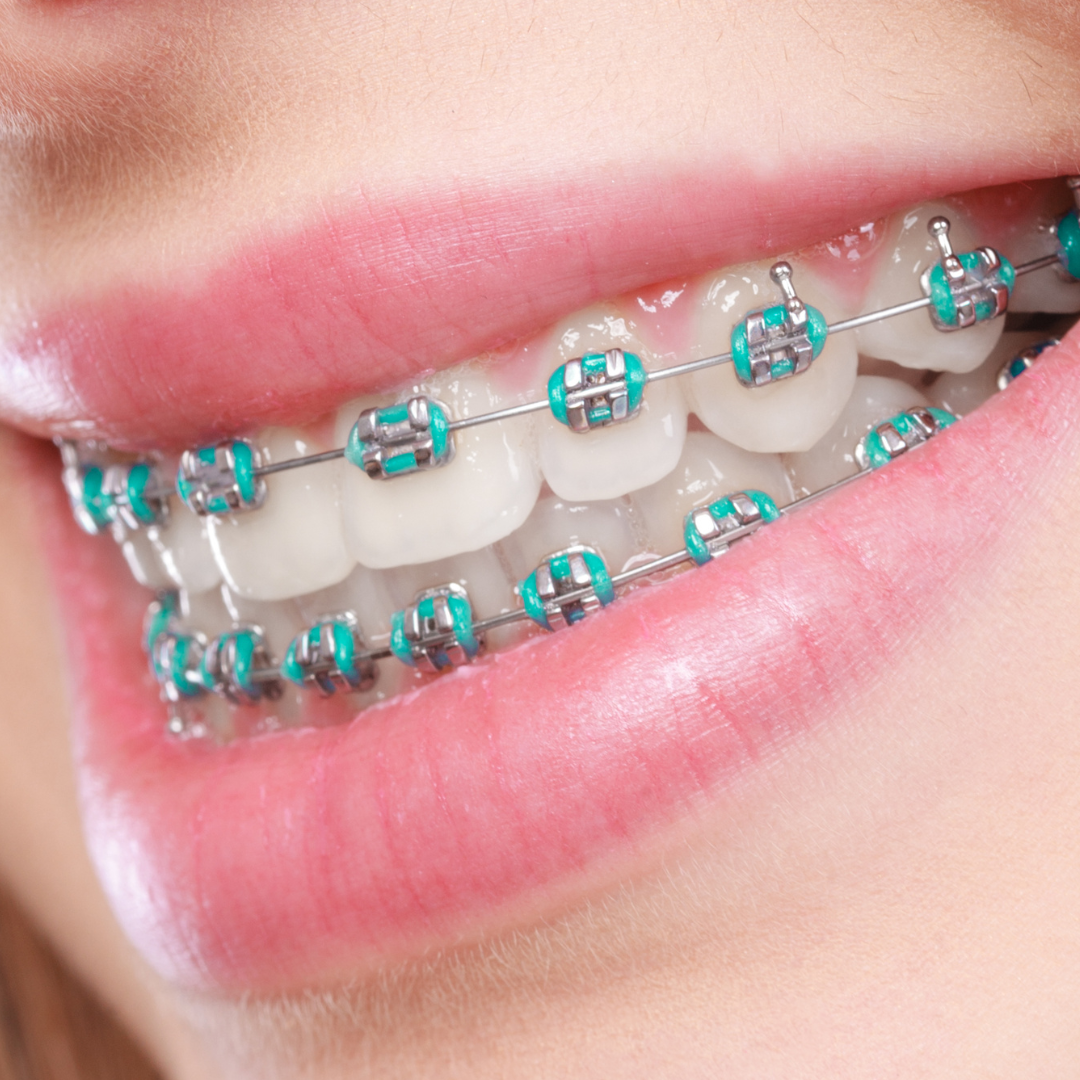Patients will sometimes ask, "Do I really need antibiotics after implant surgery?" Patients will often ask this due to previous adverse drug reactions, such as GI distress or a superinfection, such as a yeast infection. If the implant surgery is simply placing an implant in an old extraction site, antibiotics are often not needed. Using a mouth rinse such as PeridexTM or Stella LifeTM is all that is required. These rinses inhibit bacterial growth topically. However, as the procedures get more complicated, antibiotics are advisable. It is preferred to have faster tooth replacement options that require fewer surgeries. Examples of faster treatment options include placing implants at the time of tooth extraction and performing bone or soft tissue grafting.
Topics: FAQs, what to know about implants, Dental implant procedure, Dental Implant Journey, Implant Complications
With improved care and research, people are keeping their teeth longer than ever. Sometimes, however, there are instances when that might not be the case. If you are missing a tooth, consult your dentist about a replacement option. They will help you determine the best choice, whether it is a bridge or an implant, to achieve the best smile and support your overall health.
Topics: what to know about implants, Dental implant procedure, Bone Loss
Implant Treatment and Care
Oral health continues to receive a lot of attention because it's the key to overall health. Flossing and brushing are vital to a healthy smile—your teeth allow you to eat various foods, and they even shape your face.
Sometimes, however, things do not go as planned. Teeth may fall out for a variety of reasons, such as gum disease, tooth decay, or even accidental removal. Your dentist will work to keep your natural teeth, but what do you do when your teeth need to be removed?
Topics: what to know about implants, overall health, Dental implant procedure
As patients, it's important to understand that dental implants are not just a one-time solution but a long-term investment in your oral health. The cost-effectiveness of implants over time is a key factor to consider. With advancements in implant technology and cosmetic outcomes, the future of dental implants looks promising. The increasing availability of educational resources and the growing awareness among patients further underline the benefits of this option.
Topics: dental implant process, what to know about implants, Dental Implant Journey
As a cancer survivor, replacing any teeth you lost before, during, or after treatment can be an important part of regaining your health and quality of life. For many patients, dental implants are an excellent option – but the process requires some special considerations for cancer patients (i.e., is it possible for chemotherapy and dental implants to happen during the same time period?).
Topics: what to know about implants, health connection, Dental Implant Journey, Implant Complications
If you are looking to replace missing teeth, you have more options than you may think. Fixed dental implants, removable dentures, and snap-in dentures can each be a great fit depending on your specific needs. Find out which is best for you!
If you're missing one or more teeth, read below to learn the three main options you have to replace them.
Topics: Getting started with dental implants, dental implant process, what to know about implants
If you're missing teeth, or are frustrated with a continuous cycle of expensive dental problems, you're not alone. Millions of people in the United States have lost one or more teeth due to tooth decay, gum disease, or trauma. Millions more feel discouraged with an uphill physical, emotional, and financial battle against their failing dental health. While there are a number of ways to reinforce failing teeth and replace missing teeth, dental implants often provide the best long-term results and the best quality of life.
Topics: Getting started with dental implants, FAQs, what to know about implants, Credentialed Implant Dentist
Most people probably don’t think that orthodontics (braces) and implants go together, but they can in the right circumstances. Both braces and implants may help prevent tooth decay and gum disease, improve a person’s appearance, and prevent dental injuries. They help build a person’s confidence and improve their smile.
Topics: FAQs, what to know about implants, Dental implant procedure, orthodontics
Do you experience pain and jaw-popping symptoms of TMJ? Did you know that in some cases, misaligned teeth could cause TMJ? If you live with the painful sensations of TMJ and have misaligned teeth, continue reading to discover how dental implants can help alleviate your TMJ pain and provide you with a better smile with a full mouth dental reconstruction.
Topics: dental implant process, what to know about implants, overall health, Dental implant procedure, Replacement Techniques, TMJ
Even after decades of successful use, I’m still surprised by how much misinformation or a lack of actual information circulates about dental implants. The best thing you can do as a consumer is to educate yourself and learn the facts. The most crucial point is that dental implants are the most permanent and reliable solution for replacing lost teeth.
Topics: Getting started with dental implants, dental implant research, dental implant process, FAQs, what to know about implants, Dental Implant Awareness Month


